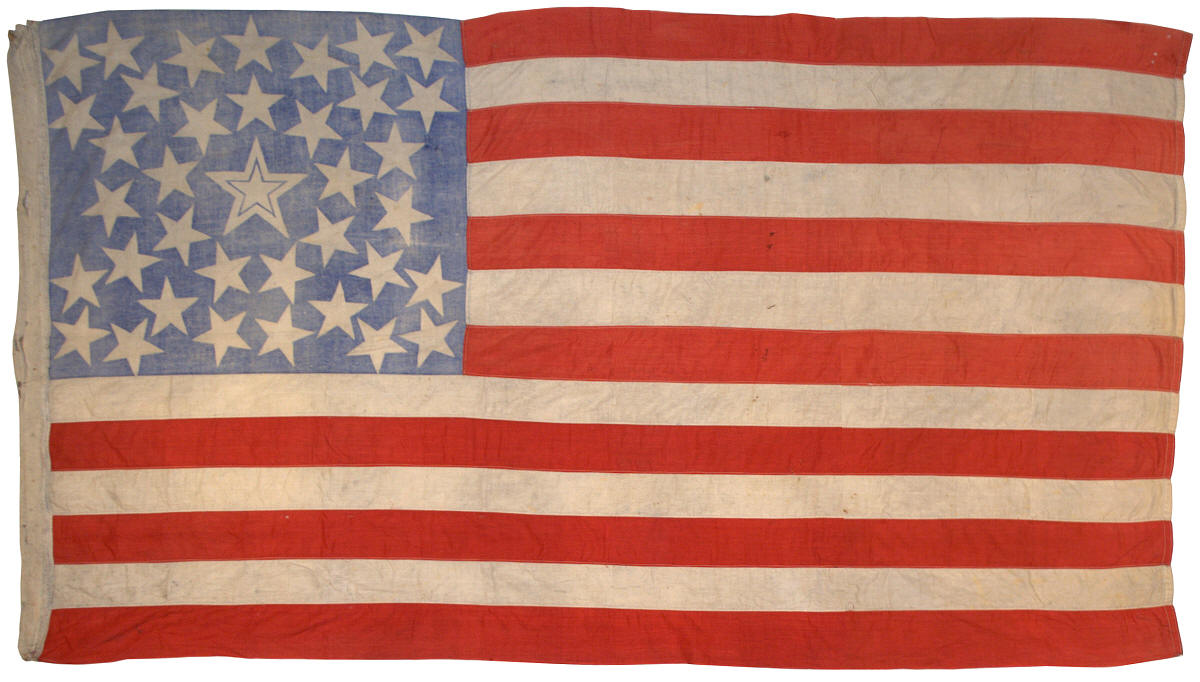
This rare flag of 37
stars is unique in my experience, in that it has a
wonderful printed double-medallion canton in the style
of a smaller printed parade flag, yet is large and of
pieced-and-sewn construction with sewn stripes and a
sewn hoist. One particular trait of certain small
printed parade flags primarily of 29 stars through 36
stars is the presence of a large center star surrounded
by a border, known in collecting as a "halo". The
halo emphasizes the center star and adds more visual
interest to the flag. This flag features a large haloed
center star much in the style of smaller haloed parade
flags. The flag also features an unusual
arrangement of three stars per corner, whereas most
medallions often have just one. Its large,
clamp-dyed cotton canton has faded to a wonderful dusty
light blue, which is offset beautifully by vivid, bold
red stripes. For some reason, flags
of 37 stars are somewhat scarce, compared to flags of 36
or 38 stars, despite the fact that 37 was the official
star count for a period of ten years. The actual period spanned
from Nebraska's statehood on March 1, 1867 to Colorado's
statehood on August 1, 1876. The reason for a
scarcity of 37 star flags is speculative, but during this time of
Reconstruction following the Civil War, there was a
general lull in patriotic fervor, compared to during the
war or during the Centennial of 1876, and fewer flags
seem to have been produced at home or manufactured
during this period. Although at
the time of the Centennial on July 4, 1876, 37 stars was
still the official count, it was well known that
Colorado's statehood was impending. Most
manufacturers produced 38 star flags for the Centennial,
not bothering to produce large quantities of flags that
would soon be outdated. Regardless, the style of
this particular flag is rare and extraordinary.
Its extremely festive canton leads me to believe that it
was most likely produced for the Centennial celebration,
though with the actual proper star count of 37.
The flag remains as one of the great period flags of the
time, representing the celebratory mood of the country
which, having so recently weathered the gravest threat
to the Union during the Civil War, was now entering a
new period of peace and great optimism. |

